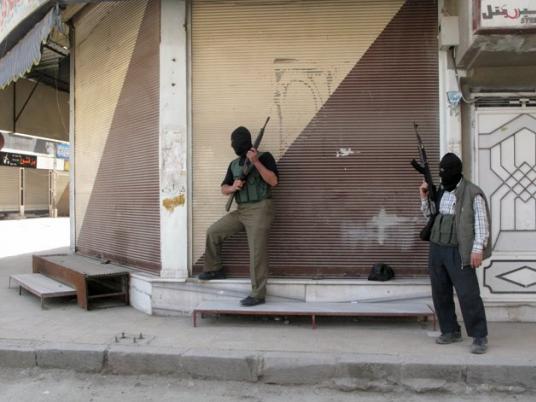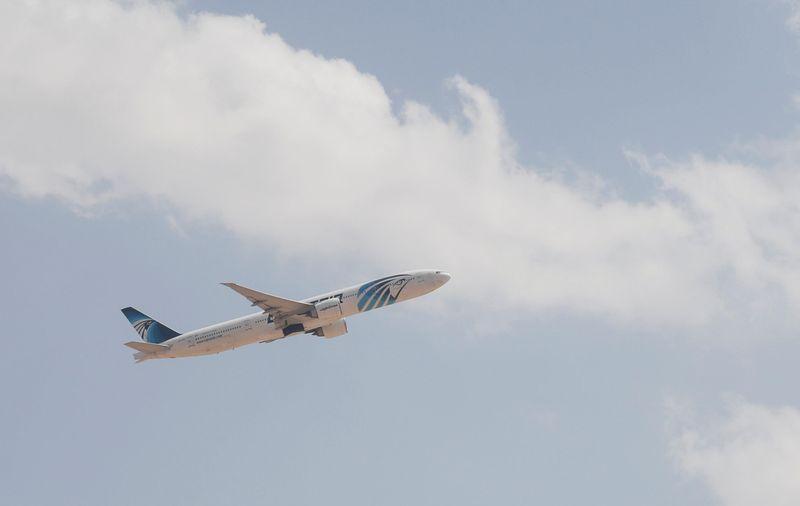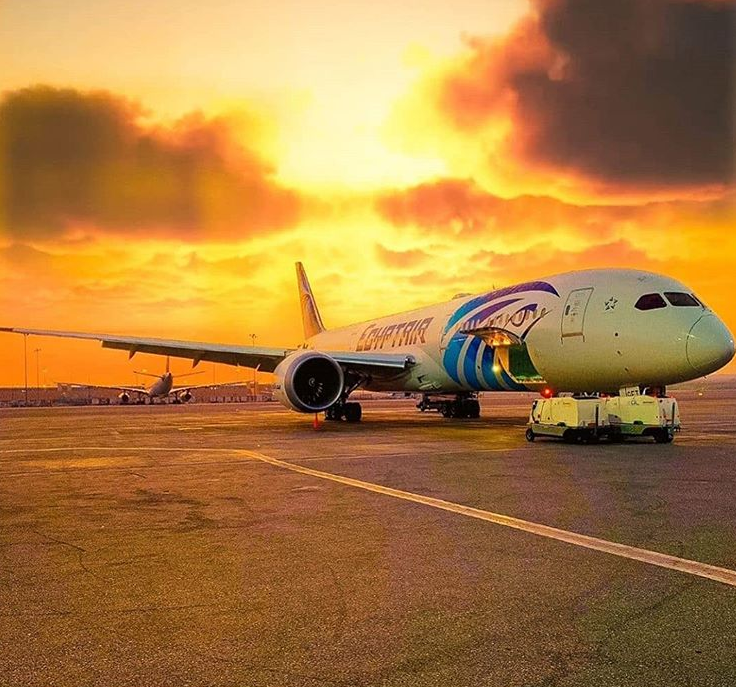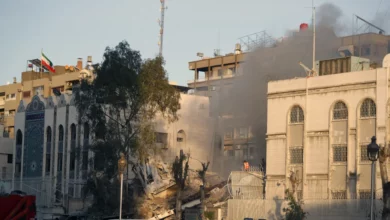
Gulf Arab states began evacuating their citizens from Lebanon on Thursday after kidnappings linked to Syria's civil war showed violence has begun to spread across a region torn by sectarian divisions.
A Lebanese Shia clan seized more than 20 people in Beirut and said a Turkish hostage, whose country is a key backer of Syria's mainly Sunni Muslim insurgency, would be the first to die if a kinsman held by Syrian rebels were killed.
The powerful Shia Meqdad family is seeking to put pressure on rebels fighting to topple Syrian President Bashar al-Assad to release clan member Hassan al-Meqdad, who has been held by the Free Syrian Army (FSA) for two days.
The clan has targeted Syrians it believes belong to the FSA, as well as citizens of Turkey, one of the rebels' regional sponsors.
An earlier threat by the kidnappers to seize Saudis, Turks and Qataris to secure the release of a kinsman held by Syrian rebels in Damascus bore ominous echoes of Lebanon's own civil war — and Arab governments lost no time in urging visitors to leave Beirut's popular summer tourist haunts.
Saudi Arabia, the United Arab Emirates, Qatar, Kuwait and Bahrain all told their nationals to leave at once. Some nations have already begun flying their citizens home.
"The snowball will grow," warned Hatem al-Meqdad, a senior member of the Meqdad family who said his brother Hassan was detained by the FSA two days ago.
Syrian President Bashar al-Assad, whose Alawite minority is an offshoot of Shia Islam, has long relied on support from Shia Iran and its Hizbullah allies.
He accuses the Sunni powers of the Gulf and Turkey of promoting the revolt against him, which grew out of Arab Spring demonstrations 18 months ago.
While his opponents, and the Western powers which sympathize with them, insist they want to avoid the kind of sectarian blood-letting seen in Iraq, rebels who mostly come from Syria's disadvantaged Sunni majority have seized Iranians and Lebanese there in recent weeks, saying they may be working for Assad.
Regional moves
Lebanon's Meqdad clan kidnapped more than 20 people on Wednesday in an action that will damage a Lebanese economy, for which Gulf tourists have played a part in recovery after 15 years of civil war ended in 1990.
"We still haven't even done 1 percent; we still haven't really moved," said a man who told reporters that he and his fellow masked gunmen are from the Meqdad clan's "military wing."
Speaking in Beirut's Hizbullah-controlled Dahiya district late on Wednesday he said they were ready to take more action against Syrian rebels in Lebanon.
Maher al-Meqdad, the clan's spokesman, said the Meqdads were only targeting the Free Syrian Army and Turks and that the number of Turkish captives "was likely to rise."
"If Hassan [al-Meqdad] is killed, the first hostage we will kill is the Turk," he told Reuters.
"Regarding Saudis, Qataris and Gulf nationals, they are not targets for the Meqdad clan," he said. The clan says Hizbullah had nothing to do with the kidnappings.
The Turkish hostage told a Lebanese television channel he was being treated well. Another station broadcast footage it said showed two Syrian hostages in the custody of masked gunmen from the Meqdad clan wearing fatigues and armed with rifles.
Lebanese Prime Minister Najib Mikati condemned the kidnappings, but his government seemed largely powerless to act.
"This brings us back to the days of the painful war, a page that Lebanese citizens have been trying to turn," he said.
Fighting in Syria has triggered violence across the border before — some of it linked to Syrian rebels bringing arms and supplies across Lebanon.
But the round of hostage-taking on both sides adds a new factor for regional states, who are advancing their strategic interests while Russia and the West are deadlocked by their deep divisions over Syria.
At a meeting in Saudi Arabia, the Organization of Islamic Cooperation suspended Syria on Thursday, citing Assad's suppression of the Syrian revolt, but there was little support for direct military involvement.
The 57-member body's rebuke is mostly symbolic, but it shows Syria's isolation — as well as that of its ally Iran — across much of the Sunni-majority Islamic world.
Humanitarian crisis
China used a visit to Beijing by a special envoy from Assad to repeat its call for the Syrian government to talk with the opposition and take steps to meet the people's demand for change, but offered no new solutions.
Talks seem unlikely in the near future while the rebels insist Assad must step down as a precondition for negotiations and government troops are pounding rebel forces.
Against that backdrop, the bloodshed in Syria continues.
In Azaz, near the heavily contested northern economic hub of Aleppo, bombing by Assad's air force killed 30 people, according to a local doctor, and wounded scores more.
Assad's forces have increasingly been using their air power against the lightly armed insurgents — a tactic which featured in fresh accusations of war crimes leveled by UN human rights investigators on Wednesday.
They said rebels had also committed war crimes, but the violations "did not reach the gravity, frequency and scale" of those by state forces and the pro-Assad shabbiha militia.
The price being paid by the Syrian people was underlined by the UN humanitarian chief, Valerie Amos, who said that as many as 2.5 million people, about one-tenth of the population, were in need of aid.
Speaking in Syria where she met Prime Minister Wael al-Halki this week, Amos said: "Back in March, we estimated that a million people were in need of help. Now as many as 2.5 million are in need of assistance and we are working to update our plans and funding requirements."




